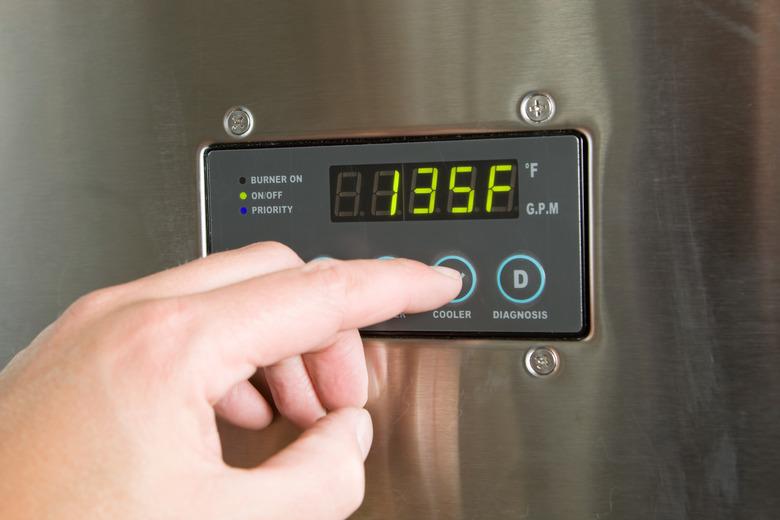HUD-Approved Water Heaters For Mobile Homes
On June 15, 1976, the United States Department of Housing and Urban Development, commonly referred to as HUD, began enforcing a set of safety standards for mobile home construction. Known as the Manufactured Home Construction and Safety Standards, this set of rules serves to help keep manufactured homes safe and to ensure quality construction. These standards cover a very large number of issues pertaining to the construction of manufactured housing, and many of them involve water heater installation and safety.
Why HUD Approval Matters
If you're not dealing with financing issues and plan to put your mobile home on a private lot, you may wonder why HUD water heater approval even matters to you. There are, however, a few compelling reasons to make sure that your water heater is HUD approved. One is simply legal compliance. Although it may not seem important at this moment, all mobile home manufacturers absolutely must comply with all HUD standards, which were designed with safety and quality in mind. If your home's manufacturer or previous owner failed to comply with the water heater standard, you should absolutely wonder what other shady and potentially dangerous elements you may find in your home.
Financial concerns are another reason to make sure your mobile home's water heater complies. Your homeowner's insurance may not cover you for an accident or problem caused by a noncompliant appliance. You could also find it difficult to sell the home if an inspector points out the lack of compliance, and a good inspector will absolutely do so.
Water Heater Compliance Standards
It would be redundant and quite lengthy to relist all of HUD's water heater standards, but it is a good idea to know a few of the basics. For example, all water heaters have a temperature control that dictates how hot the water will get. This setting is fixed on mobile home water heaters, and you cannot adjust it. While many standard water heaters are plumbed from the top, mobile home water heater inlets are usually on the side of the unit.
HUD guidelines forbid installing carpet under a water heater. Instead, installers are required to place a corrosion-resistant drip pan under the water heater that empties into a drain or a space beneath the home. Gas water heaters must vent directly outside, and the ventilation system must be completely separated from the home's living areas. HUD also requires installers to strap water heaters in place or otherwise secure them.
The HUD standards also dictate minimum energy-efficiency requirements for water heaters and establish how many appliances can be on a given electrical circuit based on a percentage of the circuit's rating. HUD also outlines many more technical details, including allowable standby loss and recovery efficiency.
Verifying Water Heater Compliance
Unfortunately, you never know what changes previous owners may have made to a used mobile home. People do sometimes put regular home water heaters into a mobile home rather than replacing a broken water heater with a potentially more expensive HUD-compliant unit. Fortunately, you don't need to know any of the technical jargon to know whether or not your water heater is HUD approved. The government requires water heaters to bear a label stating whether they are compliant or not.
Compliant water heaters come with a label that generally says, "Design evaluated by U.L. in accordance with part 3280.707 (d) (1) of HUD Mobile Home Construction Standards for Energy Efficiency" or something very similar. Units that are not HUD approved usually say something simpler, stating plainly, "Not for use in manufactured (mobile) homes."
Tankless Water Heaters
Tankless water heaters in mobile homes may be HUD compliant but don't assume they are. Currently, HUD requires manufacturers who install tankless water heaters to apply for alternative construction approval. In July 2022, the Biden administration introduced a proposal to alter the HUD standards to add tankless water heater standards and make changes to water heater energy-efficiency rules. For the most up-to-date information, check the HUD website and your local building codes
